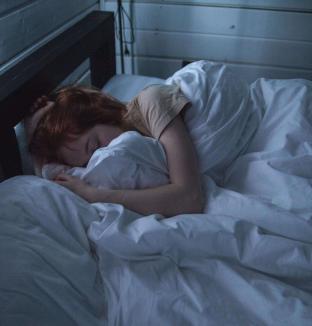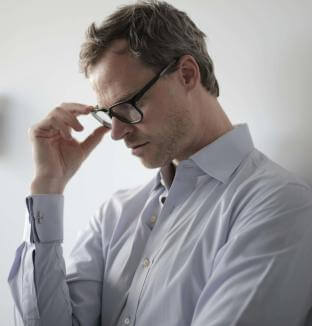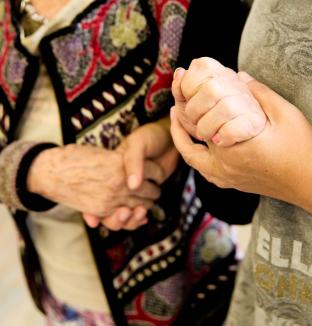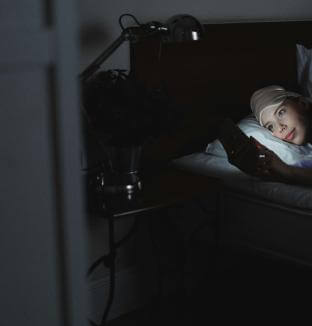Better sleep for better aging
While scientific research confirms the benefits of sleep for our body and mind, we are sleeping less... and less well!
This lack of quality sleep is the source of numerous pathologies, accelerates the ageing of our cells and amplifies the risk of cognitive degeneration.
What if better sleep were a remedy for better aging? Insights from Dr Nicolas Juenet, psychiatrist and sleep physician, Group Deputy Medical Director, Psychiatry and Sleep departments.
16 minutes less sleep in 2023
6 hours and 42 minutes. That's how little sleep the French get on anaverage weekday1 .
Too little when all health professionals agree that the average minimum sleep for an adult is equivalent to a 7-hour night.
Even more worrying is the acceleration of this process: in 2023, we will sleep an average of 6 hours 58 minutes, or 16 minutes more...
The reason for the loss of these precious minutes? The effects of our new lifestyles on our sleep, which disrupt our circadian cycles (the scientific term for our internal clocks) and impose less natural rhythms: "When I ask patients why they go to bed late, they very often mention the late hours of television channels, work that finishes late, the desire to decompress... We find this relationship with time at the other end of sleep, when we have to get up early for various reasons.Vital sleep needs are no longer met,” explains Dr Juenet.
Add to this: stress, lack of exercise, less exposure to daylight and the connection to screens that constantly stimulate our brains and diffuse blue light, which we now know blocks the production of the sleep hormone melatonin.

Weakened health capital
This chronic lack of sleep creates a breeding ground for the development of numerous pathologies. Dr Juenet describes it as a "sleep debt that we pay in both the short and long term ”, with a host of pathologies as a result: increased risk of cardiovascular disease, obesity, weakening of the immune system, disruption of hormone production, anxiety disorders, depression, cognitive problems, reduced memory... all accelerating the ageing process.
In the elderly, sleep becomes lighter, more unstable and fragmented, with frequent awakenings, potentially every 90 minutes. This can be explained by the accumulation of illnesses, sleep-disturbing polymedications, reduced exposure to light and reduced production of melatonin, essential for regulating sleep duration. “ Light, the main synchronizer of the biological clock, plays a key role, ” emphasizes Dr Juenet.
Sleep deprivation could also be a factor in the onset of certain cancers: "In Denmark, breast cancer is recognized as an occupational disease if the patient has more than twenty years of recognized night work.We know that sleep disorders and abnormal sleep rhythms play a role in cell division, and are therefore potential factors in cancer.


When I ask patients why they go to bed late, they very often mention the late hours of television channels, work that finishes late, the desire to decompress (...). Vital sleep needs are no longer met.
Dr Nicolas Juenet, psychiatrist and sleep physician, Group Deputy Medical Director, Psychiatry and Sleep departments.
Alzheimer's disease and sleep: an established link
Cognitive degeneration increases with age. One of the manifestations of Alzheimer's disease is the excessive accumulation of beta amyloid (toxic protein aggregates), which clump together to form plaques and disrupt normal brain function. It was Maiken Nedergarrd2 andher research team at the University of Rochester (USA) who first understood the link between poor sleep and Alzheimer's disease ten years ago. "It gave us a better understanding of what's going on in our brains.There's a system of channels in the brain that takes care of eliminating the waste products the brain produces throughout the day.This system works all the time, but it's particularly active during sleep,” explains Nicolas Juenet.
Poor sleep can therefore act as an early warning system, while “good sleep” can help prevent the onset of Alzheimer's disease and limit cognitive deterioration.

So how can we take care of our sleep?
A few simple rules:
- Respect your own internal clock
- Adapt your lifestyle and eating habits accordingly
- Stop exposure to blue light from our screens 1 hour before bedtime
- Take short naps (< 20 min.)
As the sleep cycle is strongly disrupted in old age, two treatments have proven their effectiveness: light therapy and melatonin. Combined, these two synchronizers - internal and external - offer an effective combination for, among other things:
- Reduce the time it takes to fall asleep
- Increase sleep duration
- Reduce depressive symptoms
- Contain cognitive deterioration
... and age better!

1 Statistics gathered by the Institut national du sommeil et de la vigilance (INSV) during the 24th Sleep Day in March 2024.
2 Maiken Nedergaard is a Danish neuroscientist.
